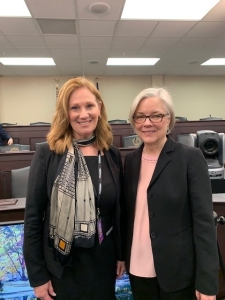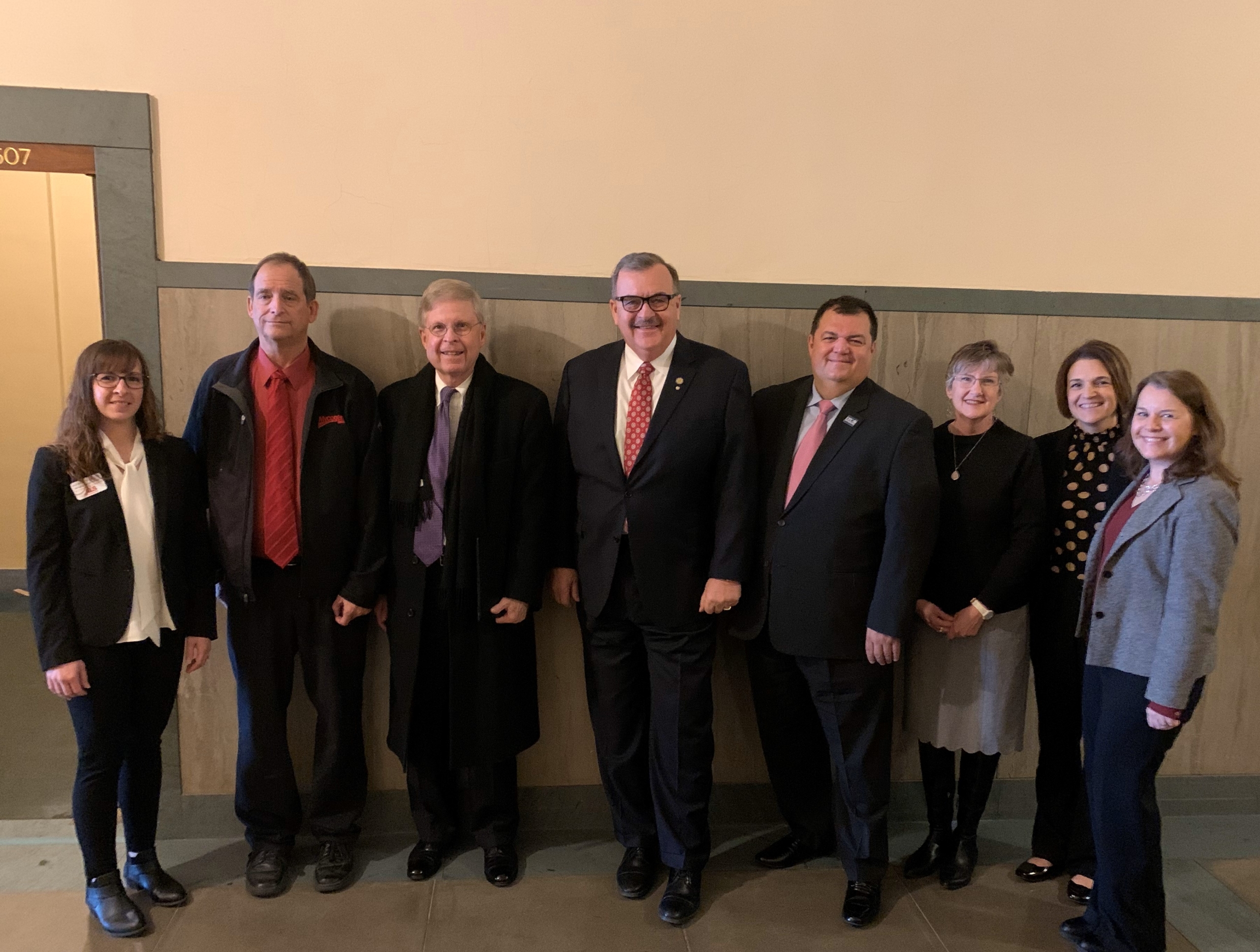
Elizabeth Lively, DPC Eastern Region Advocacy Director

Pamela Zielske, DPC Western Region Advocacy Director
The 2023 legislative session has been a busy and productive one for DPC’s state advocacy efforts. Bills impacting dialysis patients have been introduced in multiple state legislatures and in most cases have moved quickly through the legislative process.
Improving access to Medigap coverage is a top priority for DPC, and we are thrilled that legislation was introduced in multiple states this session to expand Medigap access to patients under the age of 65. Last month, DPC celebrated Governor Glenn Youngkin’s (R) signing of Virginia bills SB 1409 and HB 1640 into law, guaranteeing access to affordable Medigap coverage for thousands of Virginians under 65 living with end-stage renal disease (ESRD).
In Kentucky, Medigap legislation (HB 345) received unanimous approval from the House Health Services Committee on March 9, passed the House of Representatives 91-1 and also received unanimous approval from the Senate Health Services Committee on March 29 with a request for the bill to be placed on the Senate Consent Orders. This means the Senate votes a block of bills on the Consent Orders by a voice vote, guaranteeing passage. HB 345 was passed by the Senate on March 30 – the last day of the legislative session – and was signed by Governor Beshear on April 6.
Legislation to provide affordable access to Medigap coverage to the under 65 population was also introduced this session in Nebraska. The bill, LB 32, was heard in the Banking, Commerce, and Insurance Committee in February, and while it has not yet advanced to the General File, it is gained growing support among constituents and local groups. DPC has continued to elevate the importance of Medigap in Nebraska through a robust media campaign.
Additional bills to expand Medigap have been introduced and are moving through the legislature in Hawaii, Minnesota, Indiana, Rhode Island, Vermont, and Texas.
A Medigap bill in Indiana (SB 312) was heard in the Senate Health and Provider Services Committee on February 15 with DPC providing testimony. The hearing testimony was received positively by committee members, but the chairman chose to hold the bill in committee and not move it to the Senate floor for consideration. DPC will continue working on passing a Medigap bill that provides affordable access to under-age 65 residents and expects to have a bill introduced again in 2024.
In addition to Medigap legislation, several states have introduced bills to enhance living donor protections and financial incentives, such as tax credits or reimbursement costs, which will help increase the number of kidneys available for transplant. Bills are moving through the legislature in Indiana, New Jersey, New Mexico, New York, North Carolina, South Carolina, Vermont, and Virginia. Additionally, bills prohibiting discrimination in the organ transplant process were enacted in North Dakota and Virginia.
A number of bills have been introduced this session that align well with DPC’s mission of expanding educational

Kentucky State Representative Kimberly Moser and Elizabeth Lively, DPC Eastern Region Advocacy Director
efforts for patients and their families, including several bills in Texas, as well as one in Virginia. In Texas, SB 1354 and HB 1876 both relate to the Rita Littlefield Chronic Kidney Disease Centralized Resource Center within the Health and Human Services Commission. This resource center would raise awareness about early detection of kidney disease, provide centralized information on access to clinical trials, promote greater health equity, and reduce the burden of kidney disease statewide. Additionally, the resource center would specifically provide information on CKD prevention and educational opportunities, including awareness campaigns, access to preventative screening, nutritional information, and professional resources for health care providers who treat patients with CKD and related illnesses.
DPC has also supported two additional bills in Texas, SB 1675 and HB 2983, which establish pilot programs to provide healthy, medical nutritional assistance to certain Medicaid recipients, including patients with kidney disease.
How can you help? We are always looking for DPC Patient Ambassadors to share their stories by writing letters to legislators, testifying at committee hearings, and participating in Action Alerts that are emailed to our members.
Building strong relationships with legislators through the legislative process is how DPC is able to achieve success and improve the quality of life for its members and their families. To learn more about how you can help our state advocacy program, visit the DPC website (www.dialysispatients.org/get-involved/).




